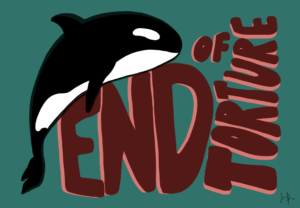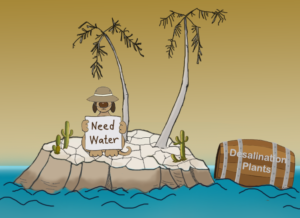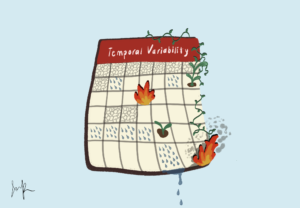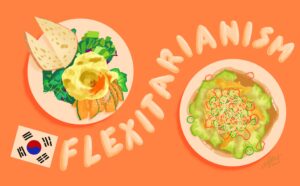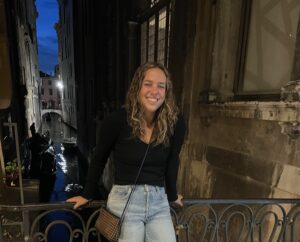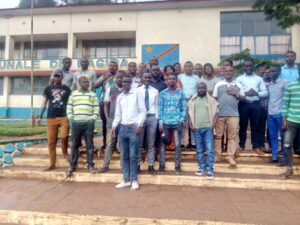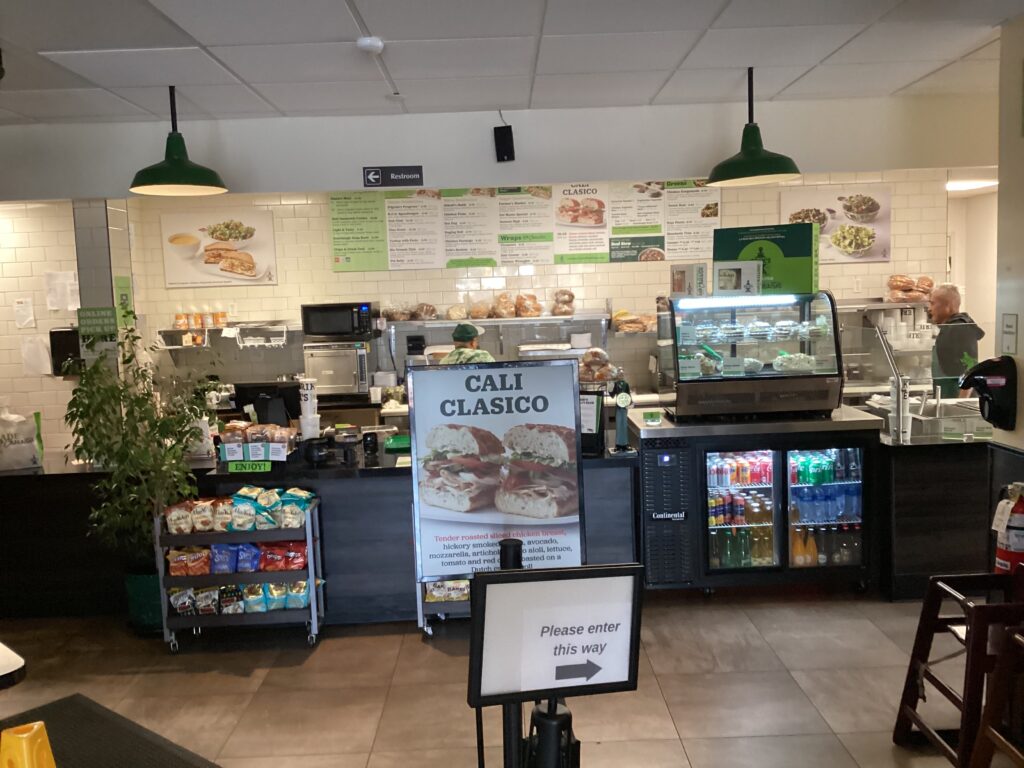
“But I feel like I have no choice because of what I see. I just have to do it,” explains Jorge Gutierrez as he discusses his thoughts on the neglected impacts of waste on the environment and why he decided to act on the issue.
Jorge is one of the owners of Erik’s DeliCafé in San Ramon, California. His father has been working for the business for over twenty-three years. “I used to work with him for a long time, but I left a while ago,” Jorge recalls.
However, around a year and a month ago, his father was given the opportunity to buy this location and wanted Jorge to join him. “He needed help because one person alone can not run the entire store. So, I decided to join him on this journey.” And soon, the Erik’s DeliCafé location in San Ramon opened up.
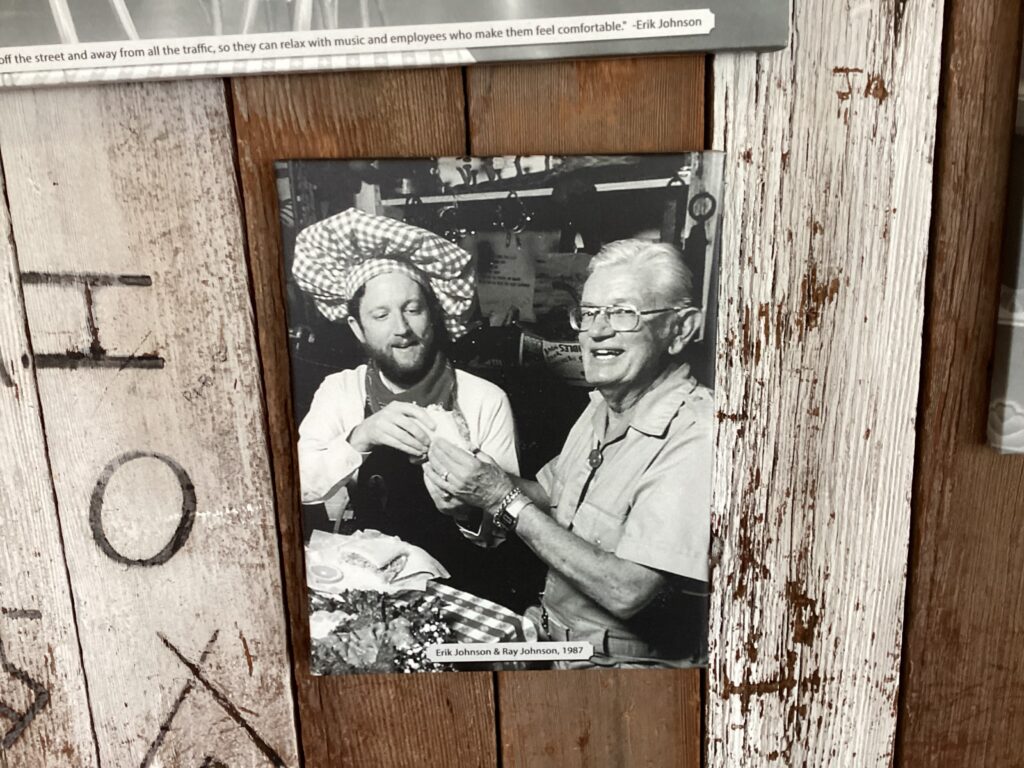
But this is no ordinary cafe. Recently, it was certified as a Trash-Free business by the City of San Ramon. Trash-Free San Ramon is “a program meant to encourage, educate, and reward businesses and residents in taking steps toward reducing dependency on single-use food ware.”
Coming up after cigarette butts and filters, disposable food ware constitutes an alarming portion of the millions of pounds of plastic debris found in the ocean every year (California Coastal Cleanup Day History). Jorge Gutierrez knew he needed to make a change.
He admits, “I’m scared of nature. It’s so powerful and I try to respect it. Nature is powerful, and it’s beautiful, and it is what it is. We shouldn’t destroy it. Especially like when we see the animals in the videos with necks on plastic nets or eating plastic—that’s not cool.” For him, learning the direct consequences of disposable food ware on the environment motivated him to implement changes in his own business.
Erik’s DeliCafé is taking steps to reduce single-use food ware garbage. For example, they provide reusable dine-in dishwashers and compostable “to-go” ware for customers. Their salad bowls are compostable, and they’ve begun the process of switching to biodegradable spoons, forks, and knives with the help of companies like Sysco.
But he wasn’t alone while making these changes. He explains that it was thanks to Erik’s DeliCafé company as a whole. “The company cares about going green. Their logo color is greenish as well,” he jokes. “They really care about the communities and not producing a lot of waste. So, what I did wasn’t a lot because the company already did a lot of it. I just tried to force it more and tried to be more involved in what they wanted us to do.”
In addition to helping the environment, Jorge’s focus while running a business is networking and socializing with people and the community. He emphasizes that it’s “part of the reason why we chose to be green and to do extra stuff with the community and be involved. We thought it was a great idea.” In fact, this cafe educates its customers and practices proper sorting of waste. Jorge works to make sure the customers don’t throw the garbage away. He lets them leave everything on the table so he can sort it out. “Trash goes in the trash. Recyclables go in the recyclables. And we compost in separate bins in the back.” It is up to him and the other workers to enforce proper sorting. They have set up signs here and there, reminding customers not to throw out garbage.
But as always, change is not always easy. Especially going green.
“It takes effort and money. It’s like when you’re already running a business, and you’re busy, you don’t want to put in extra work and money for the little things.” For example, when Jorge joined the business, there was no green bin in the back. And although he was hesitant to put in more work to get a bin for his cafe, he eventually emailed people and the county for a meeting. And now, the cafe has a green bin.
“So the process is just wanting us to do it, putting in more effort, and knowing it’s not going to be cheap. It’s tricky.” Jorge points to cost as a major barrier to businesses going green. “Because who doesn’t want to be green? But it’s expensive. People want to do it, but they don’t put in the effort and the money—if it was cheaper, I’m sure everyone would do it without question.”
Jorge wishes he could do a little more right now but mentions the high costs of switching certain plastic things to biodegradable alternatives with their logo. “It’s a slow process. We are waiting on certain things, but we are choosing to slowly transition items that are decomposable. We can’t do too much because of corporate conditions—we don’t want this deli to look too different from all the other delis.”
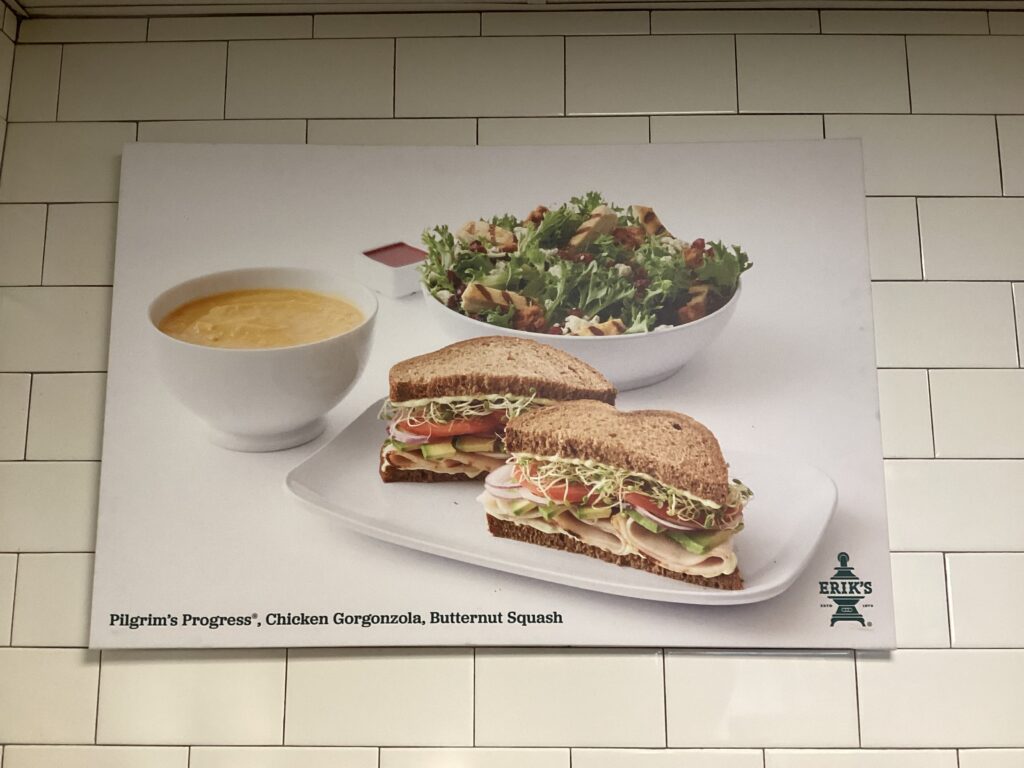
As Jorge puts it, “going green is expensive.” So, is it worth it?
Erik’s DeliCafé has been persistent in its green practices. “We stuck with it. And then, when people came in, they noticed us going green. We tried to give them glass cups over plastic cups to go, and someone noticed that. They said, ‘hey, we really appreciate that you don’t just give plastic to-go cups. You try to give glass first. And for-here utensils and plates.'”
People appreciate Jorge and his store for doing this. In addition, the cafe’s method of allowing customers to leave their plates on the tables is greatly appreciated. Customers don’t have to do extra work debating whether or not a particular item goes in the compost bin or recycling bin. Despite going green being more expensive at a glance, Jorge also notes that in the long run, reusable or biodegradable could possibly save money. “As long as you don’t break reusable cups, they’ll last forever, and you’ll save money on the people who actually eat at your place.”
As Jorge looks to the future, he hopes his store can go even further. He asked the company for permission to transition from two-ounce plastic containers to biodegradable ones. He is also hoping to try something new where customers can purchase five-dollar salad reusable boxes. Then, they can bring the salad boxes to the store and receive a two-dollar discount for every meal. And when they don’t want the box anymore, they can sell it back to the cafe for $5 “so they never really have to pay for the box. It’s just that if they want to help save, they can always carry this container, and it’s cheaper.” Plastic straws are another item he has been long wanting to transition from; he hasn’t found a straw he likes yet. So far, they have been either too big, too flimsy, or even too expensive. So, he’s waiting until he finds a type of biodegradable straw that is suitable for his store.
And that’s the key point: being patient and making small changes. To the stores looking to reduce waste as well, he advises them to “try the little things. The simple things. Plates for-here. Cups for-here.”
Although Jorge is relatively new to San Ramon, he notices that the city is already making changes to the waste practices in the community, and he appreciates the method of convincing stores to go green. He recalls when a Trash-Free San Ramon leader visited the store to discuss certifications; he valued that “San Ramon is not forcing or charging me for not going biodegradable with fees or consequences. That will put stress on all the businesses. But San Ramon ain’t forcing; they’re just asking nicely to do it. And that way of doing it is a great approach because it allows us to transition slowly. They give you connections and resources. And especially with the way they came at me with it, super nice and super helpful. I think that was a great way.”
Erik’s DeliCafé in San Ramon, a beloved spot known for its welcoming owners and delicious foods, is stepping up as a leader in the community to transition away from disposable waste. The process wasn’t easy, and Jorge allowed us to hear about the process from the perspective of a business owner, even the price dilemmas, additional work, and drawbacks. However, those like Jorge change the community by going through struggles and remaining determined to contribute to reducing waste.
If you would like more information on how your business can help create a Trash-Free San Ramon, please reach out to the Solid Waste & Environmental Programs Division at SRSolidWaste@sanramon.ca.gov.
Edited by Daphne Wang
